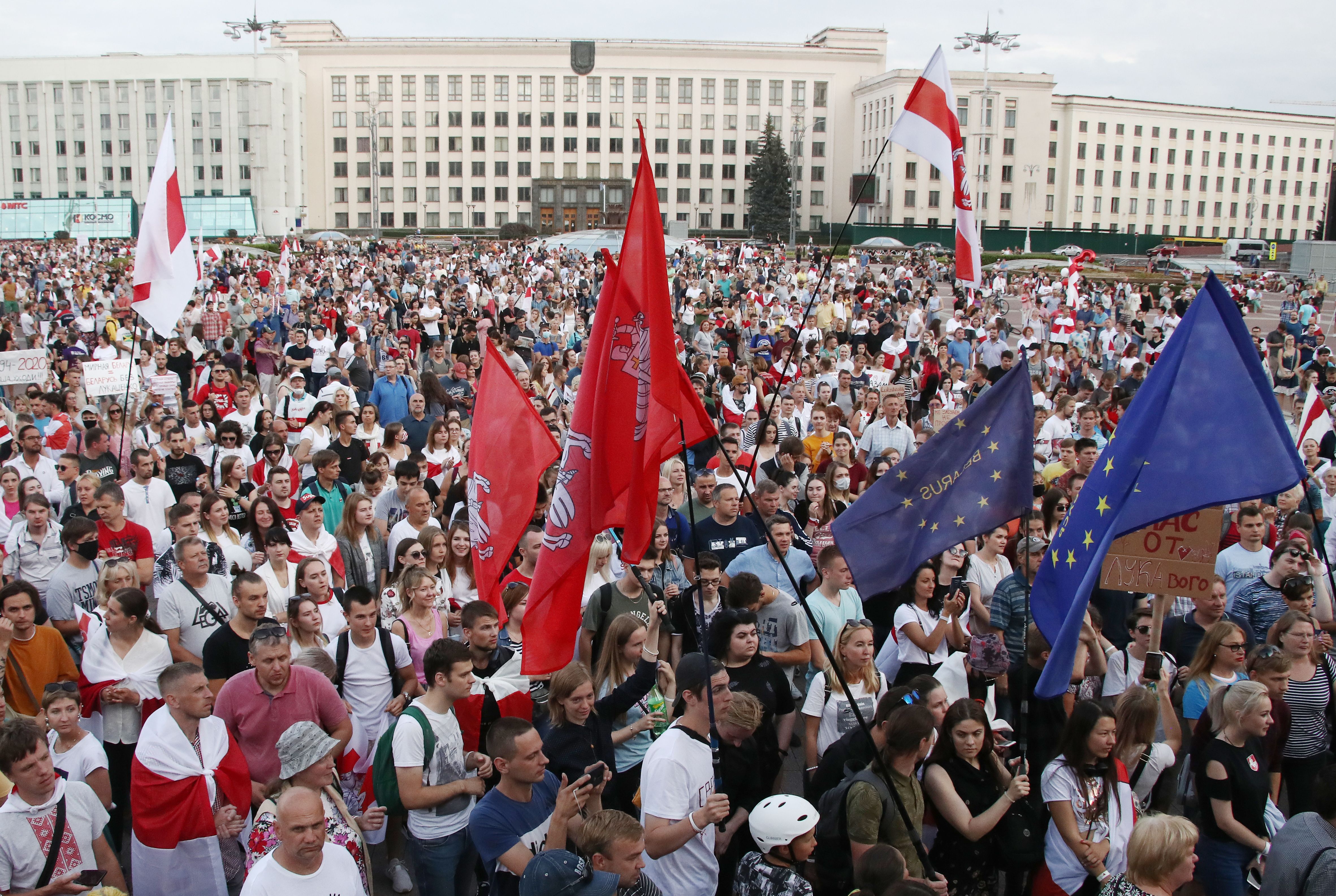International Consequences of the Presidential Election in Belarus

What is going on in Belarus?
Mass protests have been ongoing in Belarus since the end of the presidential elections on 9 August. The largest ones in the history of modern Belarus, estimated at 200,000 participants, took place on 16 August in Minsk. The scale of the demonstrations confirms that President Alexander Lukashenka has lost support with many Belarusians. The demonstrators demand his resignation, as well as the cessation of the use of violence by the security forces. The first protests on 9-11August were brutally pacified, with at least two people killed, about 7,000 people arrested, and the fate of several dozen unknown. In the following days, the demonstrations morphed into non-confrontational forms (e.g., human chains). The protesters were joined by workers from many companies, some of which decided to go on strike.
What has been Russia’s reaction?
The weakening of Lukashenka’s position favours Russia. Russian President Vladimir Putin, at the request of Lukashenka, expressed his readiness to help Belarus. Although direct Russian military intervention is highly unlikely, it cannot be excluded; if the Belarusian authorities declare that there is a threat to the Union State, Russia will decide to temporarily deploy units to Belarus. Russia may also try to change presidents into one more useful to it, using Lukashenka’s announcement about the reform of the constitution and possible presidential and parliamentary elections. Regardless of whether Lukashenka remains in power or a new pro-Russian politician becomes president, Russia will want to finalise the project of creating a fully-fledged military base in Belarus and deepening economic integration.
What has been the reaction of Western countries?
The situation in Belarus was discussed on 14 August by EU foreign ministers and on 19 August by the heads of state and government during an extraordinary session of the European Council. The EU has not recognised the official results of the presidential elections in Belarus and strongly condemned the pacification of the post-election demonstrations. It called on the Belarusian authorities to stop using violence against their own citizens. Moreover, the EU announced the introduction of personal sanctions against those responsible for violating human rights. At the same time, some Member States offered to help those who have suffered during the protests and people repressed by the regime. The U.S. and Canada also condemned the actions of the Belarusian authorities. The U.S., in cooperation with the EU, is considering imposing economic sanctions on Belarus and withdrawing from energy cooperation plans.
What will be the international consequences for Belarus?
The actions of the Belarusian authorities have weakened the country’s international position. In the long term, blocks on cooperation with Western countries given a lack of political changes will increase Belarus’ dependence on Russia. The progressive economic and military integration of both countries will, in turn, mean a gradual loss of Belarusian independence.
The expelling of members of the Wagner Group, a private military company, to Russia had tightened relations between Belarus and Ukraine, which demanded their extradition, claiming that the members participated in military operations in Donbas. Ukraine may withdraw from Minsk as a venue for talks on the settlement of the situation in the region, and thus Belarus may lose its position as a country where peace talks are held (now in Minsk are taking place meetings of the Trilateral Contact Group on Ukraine and the OSCE Minsk Process on the situation in Nagorno-Karabakh).
What does the crisis in Belarus mean for European security?
Even if now the risk of Russian intervention is low, Belarus has already taken destabilising military actions. From the east of the country to the Grodno Oblast, the 103rd Airborne Brigade has been deployed, the combat readiness of units stationed in the west of the country has been increased, exercises were carried out near the border with Lithuania, and accusations made that NATO was conducting operations against Belarus. These actions are in line with previously practised scenarios in the Zapad Russian-Belarusian military drills (especially those in 2009). Therefore, they are signal from Belarus (and Russia itself), calculated to discourage Western states from engaging in helping Belarusian society and the opposition by suggesting that it may trigger a military crisis.
What challenges does the situation in Belarus bring for Poland?
The weakening of Belarusian independence carries a very high risk for neighbouring countries, including Poland. It results mainly from the high possibility of an increase in Russian military presence in Belarus, which will degrade Poland’s security. Already now, the accusations chiefly laid by Lukashenka that Lithuania and Poland, among others, are interfering in the internal affairs of Belarus, combined with the destabilising military actions, will worsen mutual relations, including military contacts aimed at building trust that have developed mutually in recent years. Moreover, there is a high probability that the situation of the Polish minority in Belarus will also deteriorate significantly. It cannot be excluded that the repression and the deteriorating economic situation may force many Belarusian citizens to flee to Poland.


